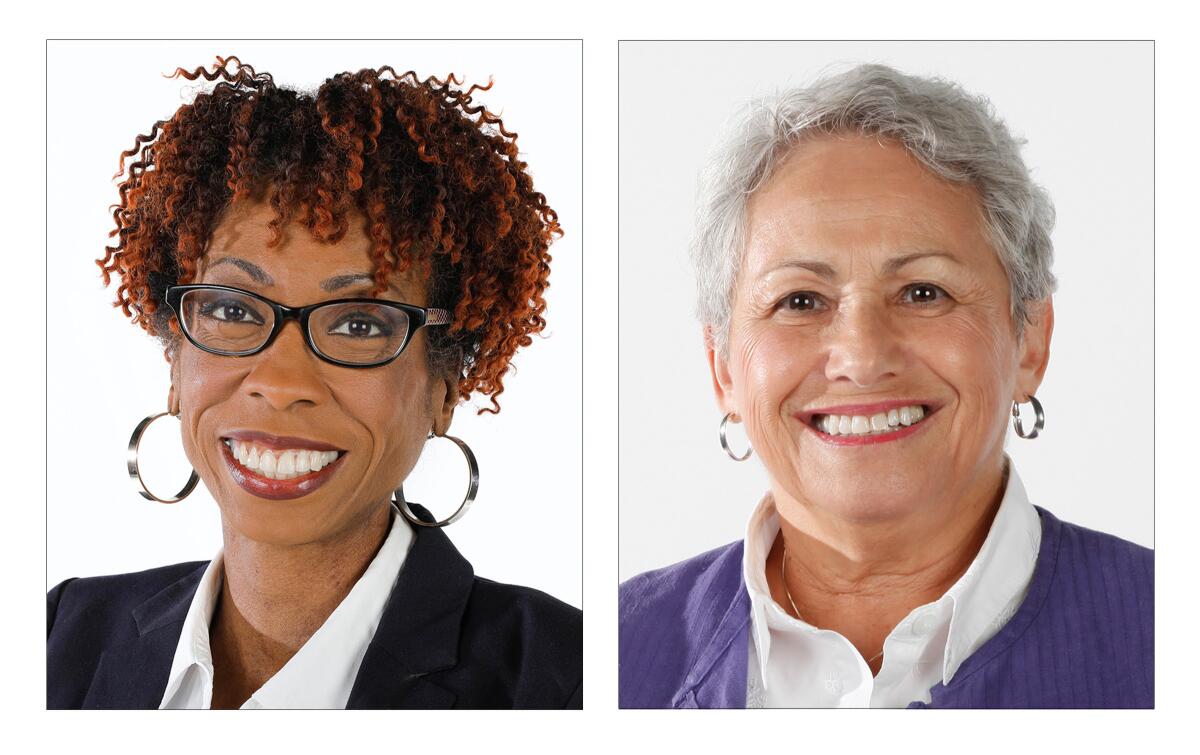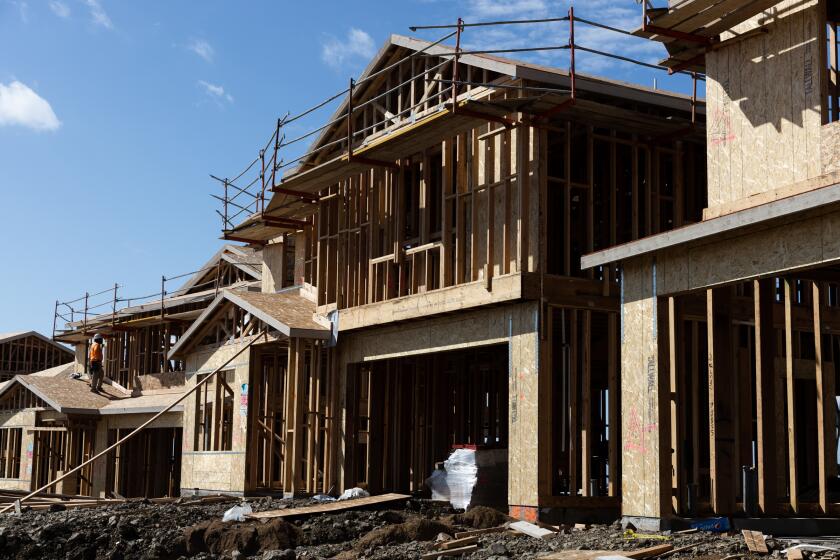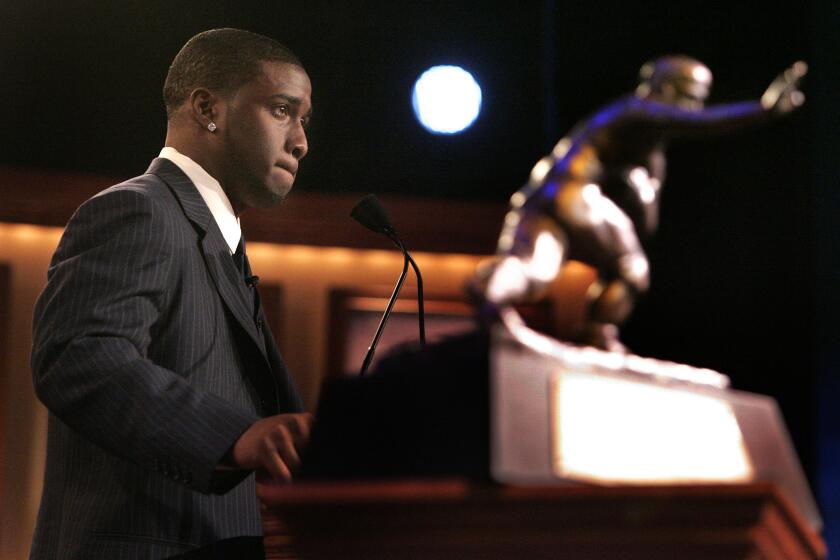Column: The myth of the San Diego City Council’s Democratic majority

Democrats have an unprecedented presence at City Hall, but a bitter political rift and a recall effort raise questions about what kind of “control” they will have
There appeared to be a moment of optimism for San Diego city government last week as Mayor Todd Gloria and five new council members were sworn in to office.
They talked about rising out of these difficult times and coming together to move San Diego forward with vision.
But appearances can be deceiving.
The relative comity of the remote ceremony was bracketed by a tense, weeks-long campaign for City Council president beforehand and by an explosive council meeting later that day to determine who would win the job — Dr. Jennifer Campbell or Monica Montgomery Steppe, both Democrats.
Campbell received a bare majority of votes following hours of comment from hundreds of people — the vast majority of whom beseeched council members to back Montgomery Steppe
Any notion the bitterness would subside was challenged the next day. A nascent recall effort targeting Campbell over her seemingly unrelated proposal on short-term vacation rentals appeared to get a boost from people backing Montgomery, who accused influential interests of working to deny her the council presidency.
Barbara Bry, the former council member who lost to Gloria, jumped into the fray, laying out her rationale for supporting the recall on KUSI. A bipartisan group of political professionals, including political consultant Dan Rottenstreich and Chris Wahl of Southwest Strategies, then held a conference call Monday to discuss an anti-recall campaign.
The City Council has never been more Democratic nor, at least in recent memory, has it seemed more riven by political division.
Democrats picked up two seats on the council for an 8-1 majority, and Gloria was elected to replace termed-out Republican Kevin Faulconer.
Who becomes council president, and the politicking behind it, is usually an insiders game. The president controls the council agenda and makes committee appointments — significant internal powers, but usually not scintillating stuff to the general public.
But this dispute became a proxy for struggles over larger issues, from social justice and police reform to housing development and short-term vacation rentals.
A complex tangle of intraparty politics brought Democrats to this point.
The Democratic Party of San Diego County endorsed Montgomery for the post, but obviously a number of Democrats wanted Campbell.
There also was a split in organized labor. Rank-and-file members pushed the San Diego and Imperial Counties Labor Council to back Montgomery Steppe. Despite the endorsement, some influential union leaders weren’t on board.
In 2018, Montgomery Steppe defeated then-council President Myrtle Cole, despite a harsh independent campaign waged against the challenger financed by union leadership. Once in office, she didn’t agree with all of labor’s priorities.
The biggest factor, however, may have been opposition from the San Diego Police Officers Association.
Montgomery Steppe is perhaps best known for seeking changes in the police department, particularly involving use of force, race relations and the department’s spending priorities.
She was a leading advocate of Measure B, the November ballot measure to create an independent Commission on Police Practices that was overwhelmingly approved by city voters.
The police union for decades had opposed such a panel, but officially remained neutral this year amid protests over police brutality. Yet exactly how the commission will operate must be determined by a future council ordinance.
Backers of Measure B have been wary of how the POA may seek to shape that ordinance.
The union didn’t openly oppose Montgomery or support Campbell for council president, but the POA was in contact with council members it has backed and let its feelings be known.
Jack Schaffer, president of the POA, did not return a telephone call seeking comment.
In a potential tension-easing move, Campbell renamed Montgomery as chair of the Public Safety and Livable Neighborhoods Committee, which will play a key role in drafting the commission ordinance.
Meanwhile, the union also endorsed Gloria and City Attorney Mara Elliott, both of whom will have influence on the commission ordinance.
Montgomery and Elliott have had their differences. Among other things, Montgomery backed a move to split up the duties of the City Attorney’s Office. That was shortly after council candidates Raul Campillo and Marni von Wilpert, both deputy city attorneys, advanced from the primary to the November election, where they won.
Both voted for Campbell, though it’s unclear whether that proposal had anything to do with their choice. However, the plan to overhaul the office was opposed by the Deputy City Attorneys Association of San Diego. The POA endorsed Campillo, but did not endorse in von Wilpert’s race.
Among other factors, Montgomery Steppe said her dedication to transparency, work on police issues and support for criminal justice reform show she had the independence and leadership to be council president.
Campbell has emphasized different issues. She has put forth a compromise on regulating short-term rentals and pushed Measure E, the successful November ballot measure that lifts the 30-foot height limit in the Midway district, allowing for more dense housing and commercial development and possibly a new sports arena.
Both positions have drawn opposition from within her District 2, which includes Clairemont, Linda Vista, Pacific Beach, Midway, Mission Beach, Ocean Beach and Point Loma. People with Save San Diego Neighborhoods started talking recall after she unveiled the STVR proposal, which they said still allowed too many rentals.
Campbell said her record of weighing in on tough issues like those would be an asset as council president. She also repeatedly talked about her collaborative nature and ability to work with sometimes conflicting groups.
She worked hard for some council candidates this year and stressed she would make room on the agenda for their concerns. That’s not insignificant. Lawmakers often rise to leadership positions not so much because of their policy positions, but their political and legislative support for members.
Both Montgomery, a Black woman, and Campbell, who is White and LGBTQ+, by most assessments can justifiably call themselves progressives, though there’s disagreement on to what degree.
Clearly, labor leaders, developers and business interests — and Republicans — are more comfortable with Campbell.
Speaking of Republicans, council member Chris Cate was courted by both sides. He backed Campbell and she won on a 5-4 vote. He ended up with a prized appointment: chair of the Budget and Governmental Efficiency Committee.
In this day of Democratic dominance at City Hall, the lone Republican on the council may have determined who would wield the gavel.
Get Essential San Diego, weekday mornings
Get top headlines from the Union-Tribune in your inbox weekday mornings, including top news, local, sports, business, entertainment and opinion.
You may occasionally receive promotional content from the San Diego Union-Tribune.












